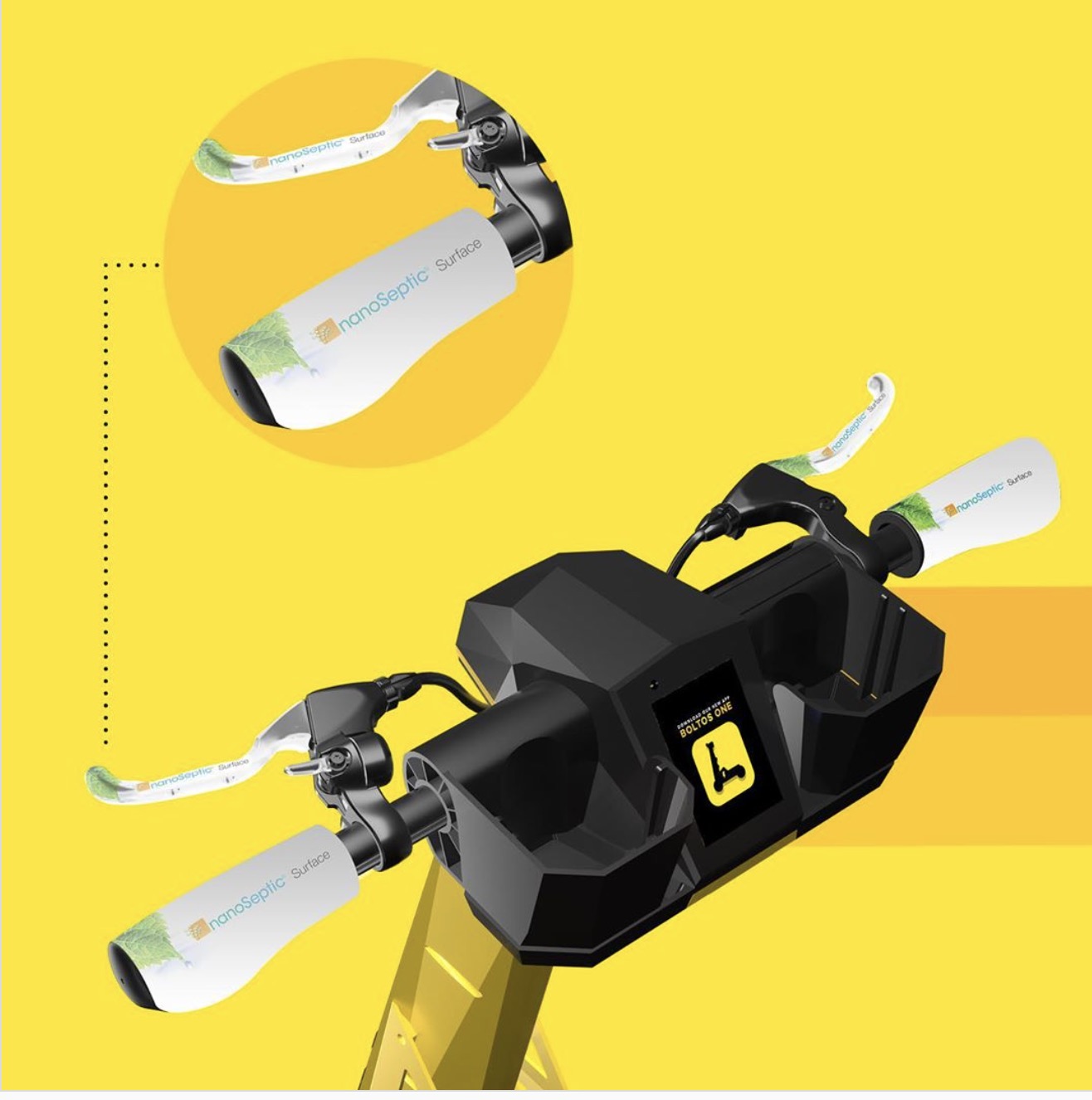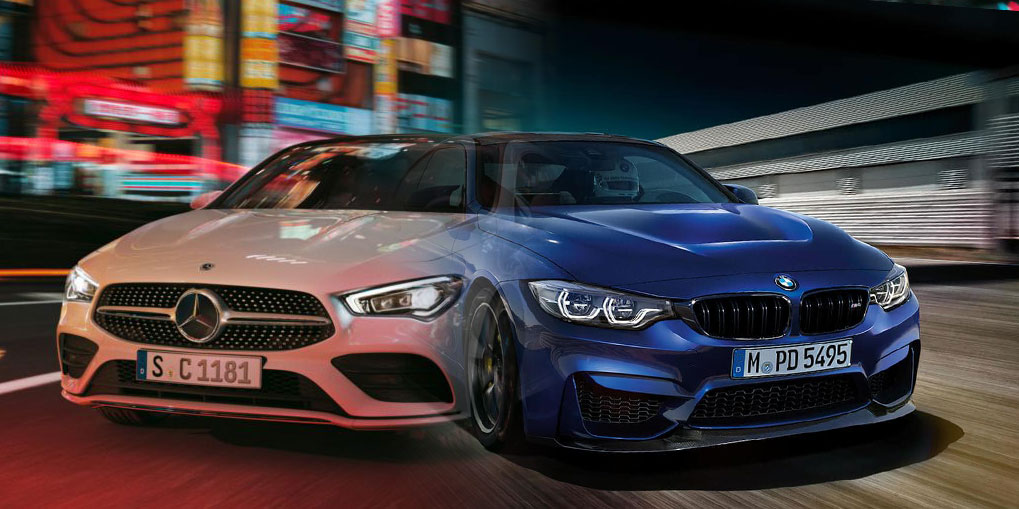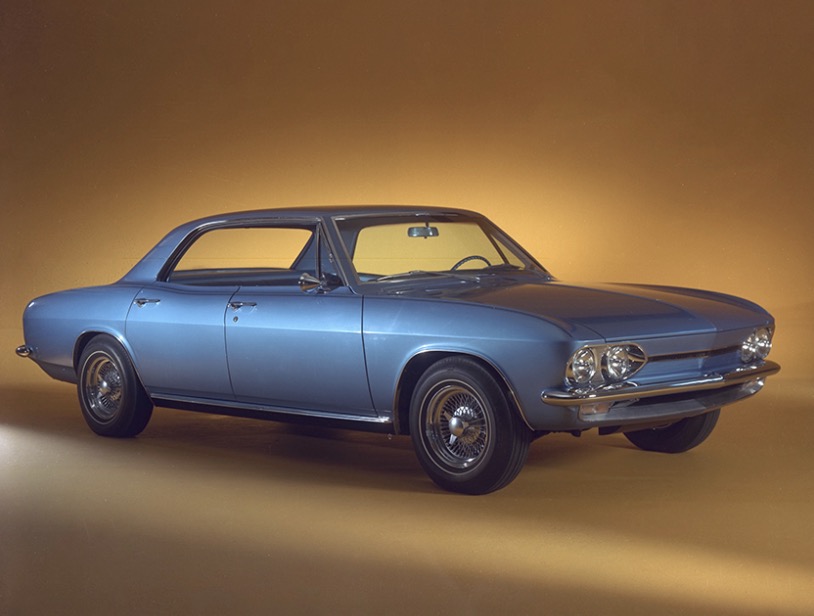TechCrunch
TechCrunch
Hi friends and first-time readers. Welcome back to The Station, a newsletter dedicated to all the present and future ways people and packages move from Point A to Point B. I’m your host Kirsten Korosec, senior transportation reporter at TechCrunch.
Let’s get straight to it this week.
Remember please reach out and email me at kirsten.korosec@techcrunch.com to share thoughts, criticisms, offer up opinions or tips. You can also send a direct message to me at Twitter — @kirstenkorosec.
Vamos.
Micromobbin’
Micromobbin’ is typically the scooting ground of Megan Rose Dickey. This week, you’ll have to deal with me.
A few micromobility stories got my attention this week largely because they bring up two themes that have developed in 2020: consolidation and the development and deployment of technology aimed at solving challenges with unit economics, regulations and market share.
First up is Bird, which launched a new standalone app called Bird Maps, in Paris and Tel Aviv. Bird Maps, which was created using navigation software from Israeli startup Trailze, will provide turn-by-turn navigation for riders who want to use bike or micromobility lanes for their entire trip. The app is a just a pilot for now. But it could stick around and become available in other cities if it succeeds in attracting more customers and placating cities that are sick of the chaos and sidewalk congestion caused by the misuse of scooters.
Speaking of scooter chaos, micromobility docking startup Swiftmile and remote-controlled scooter repositioning startup Tortoise have partnered to solve two pain points: sidewalk congestion and keeping devices charged.
Swiftmile and Tortoise share many of the same customers. The idea is for Tortoise’s repositioning tech to be used to direct scooters (from companies it has deals with) to a Swiftmile docking station. The system could keep scooters on roads longer and in better shape (they tend to suffer more wear and tear when companies rely on gig workers to charge the products). It could also ease tensions with cities seeking a solution to the unsightly scene of discarded scooters littering sidewalks.
One more tech-centric story worth mentioning is about Bolt Mobility, a company I’ve become more interested in because of how they’ve tweaked their business model. The startup was co-founded by Olympic gold medalist sprinter Usain Bolt and is now led by Julia Steyn, who was formerly the CEO of GM’s now defunct car-sharing service Maven.
Bolt recently expanded to Japan and New York City. This week, it relaunched in Portland with Bolt One, a scooter equipped with front-facing footrests, dual brakes, 10-inch wheels, LED lights and swappable batteries with 25 miles of range.
Two items popped out at me. First, the company has installed NanoSeptic surfaces to its handlebars and brake levers, the two main contact points on a scooter. NanoSeptic has self-cleaning technology that is activated by light to rid surfaces of germs and bacteria, the company told TechCrunch.
And in Portland, it is partnering with local entrepreneur Timothy Robinson to run its local operations. Robinson will employ a local team to rebalance, recharge and when necessary, repair scooters to ensure availability all around the city.
Bolt Mobility tells me that partnering with a local business owner is a new approach. “With their local knowledge, we believe they can best serve cities and their unique transportation needs,” the company told me in an email.
Finally, we turn to Jump, which Uber offloaded to Lime as part of a complex fundraising deal. You might remember that Uber sent thousands of Jump bikes and scooters in the U.S. to the scrap yard for recycling. The word from several sources was that Lime would only accept unused Jump bikes.
Attention then turned to Europe and industry watchers and competitors waited to see if Jump bikes in those markets would suffer the same fate. This week, Lime closed the acquisition of Uber’s micromobility subsidiary Jump in Europe. And as we saw in the U.S. Jump bikes and scooters have disappeared from the streets of London, Paris, Brussels, Rome and other European cities.
Jump bikes and scooters are now sitting in warehouses, waiting for Lime to either redeploy or trash them.
Deal of the week
COVID-19 might be the thread that runs through every business trend in 2020. Half way through the year, one theme is the belief that delivery is worth betting on in the near and long term.
Take DoorDash, the popular American food delivery company and my deal of the week. The company raised about $400 million in a Series H round at a valuation slightly under the $16 billion mark. The round had been expected, although it’s worth noting that the final valuation of the deal came in $1 billion higher than earlier reports had indicated.
DoorDash has aggressively raised capital throughout its life, including a huge Series G in late 2019 that valued it near $13 billion. Lest you forget, the company privately filed to go public earlier this year. Those plans were pushed back likely due to the COVID-19 pandemic and the economic uncertainty that it continues to spread.
The question is then, where does DoorDash go from here? The company is at war with the Uber Eats service, the Postmates delivery service and the Grubhub-Just Eat Takeaway hybrid. It’s also facing a legal battle with San Francisco. The SF district attorney initiated a lawsuit against DoorDash on June 16 over allegations that it illegally misclassified employees as independent contractors. Comments from SF DA Chesa Boudin suggests the city is ready for a protracted fight.
“I assure you this is just the first step among many to fight for worker safety and equal enforcement of the law,” Boudin tweeted this week.
That means capital requirements are not fading away anytime soon. Nor is the ever looming threat — or opportunity, depending on where you sit — of consolidation.
We know that Uber, still smarting from its failed deal to buy Grubhub, is itching to expand the market share of its Eats food delivery business. Uber has stated that consolidation, in its view, is a path to profitability. It also said it “that doesn’t mean we are interested in doing any deal, at any price, with any player.”
DoorDash, loaded with a fresh injection of capital, could bypass private investors and a merger play and opt for door No. 3: public markets. Companies like Nikola Motor and Vroom recently made the leap despite weak economics in their core businesses.
Other deals that got our attention …
Mapillary, the startup that has developed a street-level imagery platform that uses computer vision to automate and scale mapping, has been acquired by Facebook. Mapillary team and project will become part of Facebook’s broader open mapping efforts, TechCrunch’s Steve O’Hear reported. I’ve been following Mapillary because of how its platform could be used in the transportation sector, specifically in the development of autonomous vehicles. Jan Erik Solem, the founder of Mapillary is on a bit of a roll. Solem launched Mapillary in 2014 after selling his first computer vision company to Apple. You can read more about the company in this blog post from Solem.
SuperAnnotate is an interesting little startup that launched in February. The company, which just raised $3 million in seed funding, developed an image annotation platform for labeling teams and data scientists. Basically, it has created a toolkit for manual labeling, a simple communication system, recognition improvement, image status tracking, templates, dashboards and other essential tools. SuperAnnotate is one of those “picks and shovels” companies, a term I use to describe businesses that are poised to make big bucks providing tools for the autonomous vehicle industry. But this platform has applications beyond AVs and can also be used in robotics, retail, satellite imagery, security, and medical imaging.
Splyt, a UK-based company that developed software to simplify ride hailing, raised $19.5 million in a round led by SoftBank. Splyt has raised a total of $35 million.
Volkswagen invested another $200 million into QuantumScape, a Stanford University spinout developing solid-state batteries as the automaker bets on a next-generation technology that will unlock longer ranges and faster charging times in electric vehicles.
Israeli startup CENS, which developed nanotechnology to improve the
performance of batteries used in electric vehicles, drones and solar energy storage plants, raised $1.5 million in a round led by the UK based investor Vincent Tchenguiz at Consensus Group.
The City of Fort Worth approved a $68.9 million economic incentive package for Linear Labs, a startup developing an electric motor for cars, scooters, robots, wind turbines and even HVAC systems. The company is planning to secure a 500,000-square-foot facility for its research and production center that will manufacture electric motors. The four-year-old company was founded by Brad and Fred Hunstable, who say they have invented a lighter, more flexible electric motor. The pair came up with the motor they’ve dubbed the Hunstable Electric Turbine (HET) while working to design a device that could pump clean water and provide power for small communities in underdeveloped regions of the world.
BYD Co., the Chinese auto giant backed by Warren Buffett, secured 800 million yuan ($113 million) in a Series A+ round for its chipmaking arm, BYD Semiconductor.
GoFor Industries, a Canadian startup that developed an on-demand last-mile delivery service for the construction industry, has raised C$9.8 million in seed funding.
Dumpling, a startup based in Seattle and Berkeley, Calif., raised $6.5 million in Series A funding round led by Forerunner Ventures. The startup helps users launch and run independent grocery shopping and delivery businesses.
Bitauto Holdings Ltd., the Chinese car comparison website, agreed to be taken private by an investor group backed by gaming and social media firm Tencent Holdings for $1.1 billion in cash, per Reuters.
TriEye, an Israeli startup that’s working on a sensor technology to help vehicle driver-assistance and self-driving systems see better in poor weather conditions, announced a collaboration with DENSO to evaluate its CMOS-based Short-Wave Infrared camera called Sparrow. Porsche, which took a minority stake in TriEye last year, is also evaluating the Sparrow camera.
This is more of an infrastructure play, but interesting nonetheless. ECOncrete, an Israeli startup that has developed eco-friendly concrete technology used in the construction of breakwaters, seawalls and piers, raised $5 million in a round led by Bridges Israel. Technology investment house Goldacre also participated in the round. ECOncrete part of the company’s RElab 2020 PropTech cohort — its accelerator program.
And under the “lol” category …
Hertz, which filed for bankruptcy last month, halted its $500 million stock offering after the U.S. Securities and Exchange Commission told the rental company it would review its controversial plan to sell shares that could soon be wiped out completely. I am shocked I tell you. Shocked.
Hertz had planned to issue a $500 million stock offering following approval from the U.S. Bankruptcy Court for the District of Delaware . Last week, the court gave Hertz permission to sell up to 246.8 million unissued shares (about $1 billion) to Jefferies LLC.
Layoffs, business disruptions and people
Before we get to the layoffs, it’s worth noting the end of what was supposed to be a long-term alliance between BMW and Mercedes Benz AG to develop next generation automated driving technology.
The agreement was announced just 11 months ago. And now, it’s kaput. The German automakers called the break up “mutual and amicable” and have each agreed to concentrate on their existing development paths. Those new paths may include working with new or current partners.
The partnership was never meant to be exclusive. But it was interesting because it reflected the increasingly common approach among legacy manufacturers to form loose development agreements in an aim to share the capitally intensive work of developing, testing and validating automated driving technology.
Layoffs
BMW also announced it will cut 6,000 jobs in an agreement reached with the German Works Council. The cuts, prompted by sluggish sales caused by the COVID-19 pandemic, will be reportedly accomplished through early retirement, non-renewal of temporary contracts, ending redundant positions and not filling vacant positions, Marketwatch reported.
Grab, Southeast Asia’s largest ride-hailing startup is laying off about 360 people, or slightly less than 5% of its employees. A Grab spokesperson told TechCrunch that the company will not be shutting down offices, and that this is the last organization-wide layoff the company will perform this year. Grab will sunset some “non-core projects,” consolidate functions and reduce team sizes. It is also reallocating more resources to its on-demand delivery verticals.
Volvo Group is cutting 4,100 white-collar jobs globally and about 15% of the cuts will be contractors, per Freight Waves.
Layoffs.fyi has launched a severance tracker. The site said that of the 500 startups with layoffs, 10 of them offered more than 8 weeks of severance pay and more than 4 months of extended healthcare coverage.
A little bird
We hear and see things, but we’re not selfish. We share!
I wandered over to the Federal Motor Carrier Safety Administration website and this popped up. It appears that autonomous vehicle technology company Aurora has filed for a USDOT number from the FMCSA. This caught my eye because for companies to operate commercial vehicles that haul freight along interstates, they must be registered with the FMCSA and must have a USDOT Number.
It doesn’t appear that Aurora has received authorization yet, according to the filing. This should be viewed as a first step and illustrates Aurora’s previously stated intentions to develop technology for self-driving trucks.
Notable reads and other tidbits
Lots to cover here …
Ride-hailing
Uber said it will manage an on-demand service for Marin County in the San Francisco Bay area with a Software as a Service product as part of the ride-hailing company’s broader strategy to push into public transit.
Transportation Authority of Marin (TAM) will pay Uber a subscription fee to use its management software to facilitate requesting, matching and tracking of its high-occupancy vehicle fleet, starting with a service that operates along the Highway 101 corridor. Marin Transit trips will show up in the Uber app and let users book and even share rides.
This is notable because the deal marks the first SaaS partnership for Uber and a likely pathway moving forward. Remember that Uber recently offloaded its micromobility unit Jump in a deal with Lime and has reshaped its strategy since the COVID-19 pandemic. Uber CEO Dara Khosrowshahi said during the company’s last earnings call that the company is focused on growing Eats, its food delivery business, as well as public transit.
Automated driving
Ford will start offering a hands-free driving feature in the second half 2021, beginning with its new Mustang Mach-E electric vehicle. The hands-free feature, called Active Drive Assist, is part of a larger package of advanced driver assistance features collectively called Ford Co-Pilot360 Active 2.0 Prep Package. The hands-free feature has been anticipated since the Mustang Mach-E, which has a driving monitoring system situated above the steering wheel, was revealed last year.
National Highway Traffic and Safety Administration introduced this week the Automated Vehicle Transparency and Engagement for Safe Testing, or AV TEST Initiative. Those testing automated vehicles can now voluntarily submit information to NHTSA. The announcement included nine companies and eight states that have signed on as the first participants.
Electric news
Lucid Motors will begin producing its luxury electric vehicle for customers at its new Arizona factory in early 2021, about three months later than expected due to a slowdown caused by COVID-19.
The company, which plans to unveil a production version of the Lucid Air in an online event scheduled for September 9, said construction resumed several weeks ago at its factory in Casa Grande, Arizona, and is on target to complete phase one this year. Lucid Motors has also restarted vehicle development work at its California facility, which was briefly delayed due to shelter-in-place orders.
Lyft said that every car, truck and SUV on its platform will be all-electric or powered by another zero-emission technology by 2030, a commitment that will require the company to coax drivers to shift away from gas-powered vehicles. It’s important to note that after a bit of waffling, Lyft finally answered my question and confirmed that it won’t prohibit drivers on its platform from driving a gas-powered vehicle. The company told me they didn’t think that step was necessary.
The target, which Lyft plans to pursue with help from the Environmental Defense Fund and other partners, will stretch across multiple programs. It will include the company’s autonomous vehicles, the Express Drive rental car partner program for rideshare drivers, consumer rental cars for riders and personal cars that drivers use on the Lyft app. That personal car category will be the tricky one.
Miscellaneous bits
MIT Center for Transportation and Logistics and the Toyota Collaborative Safety Research Center released DriveSeg, a new open dataset intended to help accelerate autonomous driving research. The dataset contains pixel-level representations through the lens of a continuous driving scene — allowing researchers to identify more amorphous objects that do not always have uniform shapes. It’s free and can be used by researchers and the academic community for non-commercial purposes.
House Speaker Nancy Pelosi announced plans to bring a $1.5 trillion infrastructure bill called the Moving Forward Act. The bulk of proposed bill, which Pelosi said will be introduced before the July 4 recess, stems from Democrat-led legislation currently making its way through the House that would authorize $494 million to be spent over five years on roads, bridges and transit programs. It also includes $25 billion for drinking water, $100 billion for broadband, $70 billion for clean energy projects, $100 billion for low income schools, $30 billion to upgrade hospitals, $100 billion in funding for public housing and $25 billion for the postal service, The Hill reported.
Motor Trend has a great piece on the experience of the Black motorist and how that has and has not evolved since the Jim Crow era.
GM released a timeline to celebrate the 100-year anniversary of its GM Research and Development department. It’s a fun ride down memory lane and includes the 1964 Electrovair, which was developed to test the viability of electric power for passenger cars.
]]>










